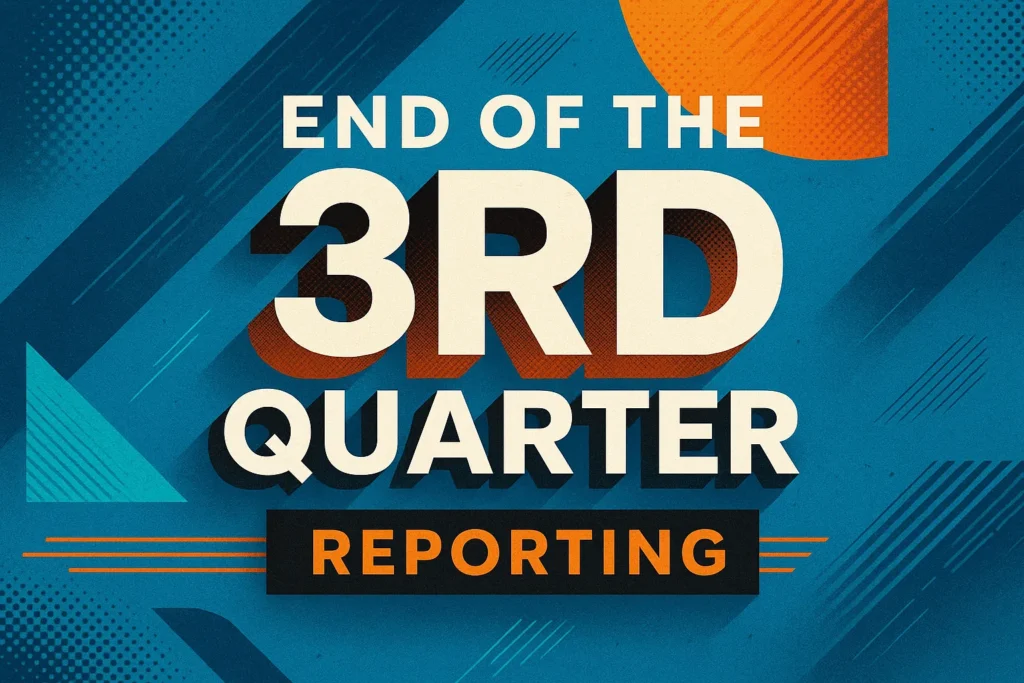The end of the third quarter on September 27 signals the start of the Q3 earnings reporting season, a crucial period of market volatility and strategic importance for investors
About the Event
The Q3 earnings season is part of the quarterly financial reporting cycle required for public companies by regulatory authorities. This ritual has been a cornerstone of financial markets since the Securities Exchange Act of 1934 formalized reporting requirements, occurring four times annually after each quarter ends.
While September 27 marks the quarter’s end, the actual reporting season typically begins in mid-October with major financial institutions leading the way, and continues for approximately six weeks.
Market Impact
Earnings season creates significant market effects:
- Increased volatility – Individual stocks often experience substantial price movements following earnings releases
- Sector rotation – Strong or weak performance patterns across industries can trigger broader market shifts
- Revised forecasts – Analysts update their projections based on new data, affecting longer-term price trends
- Volume surges – Trading activity typically increases around earnings announcements
- Options premiums – Implied volatility often rises ahead of earnings, affecting derivatives pricing
The third quarter reports hold particular significance as they often include forward guidance for year-end performance and early indications about the coming year’s prospects.
Participation Opportunities
While earnings season doesn’t have a physical location, market participants can engage through various channels:
- Listening to public earnings conference calls (typically accessible through company investor relations websites)
- Reading official earnings releases and financial statements
- Following analyst calls and commentary
- Utilizing financial data platforms that aggregate earnings information
- Trading securities based on anticipated or actual results
Many brokerages and financial platforms provide earnings calendars to help investors track important reporting dates.
Who Should Pay Attention
Earnings season is critical for:
- Active traders – Who capitalize on short-term price movements triggered by earnings surprises
- Long-term investors – Who evaluate fundamental business performance and outlook
- Portfolio managers – Who assess holdings against sector performance and make allocation adjustments
- Options traders – Who develop strategies around anticipated volatility
- Fundamental analysts – Who update valuation models with fresh financial data
Even passive investors benefit from awareness of earnings season’s potential impact on their portfolios.
Key Takeaways
The Q3 earnings season beginning after September 27 represents a critical period for market participants. Proper preparation includes reviewing earnings calendars, understanding analyst expectations, and developing strategic approaches to manage both risks and opportunities during this period of heightened market activity.
By staying informed about reporting schedules, particularly for holdings in your portfolio or watchlist, investors can make more informed decisions during this consequential financial reporting cycle.
